Title: Professor at TEDX Event Says Global Poverty is Waning
Steve Radelet, distinguished professor in the practice, was one of 11 speakers to talk about making positive change in the world during Saturday’s TEDxGeorgetown at Gaston Hall.

,
, 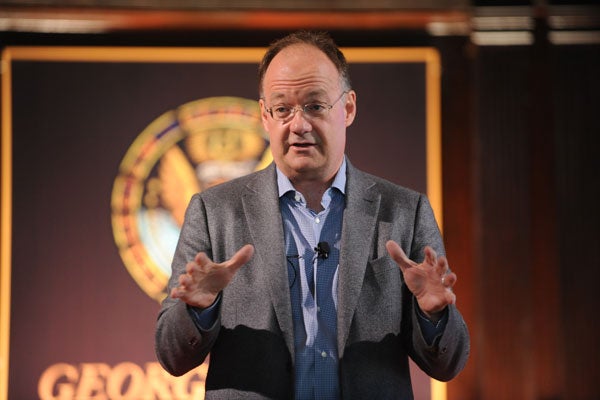
,
, 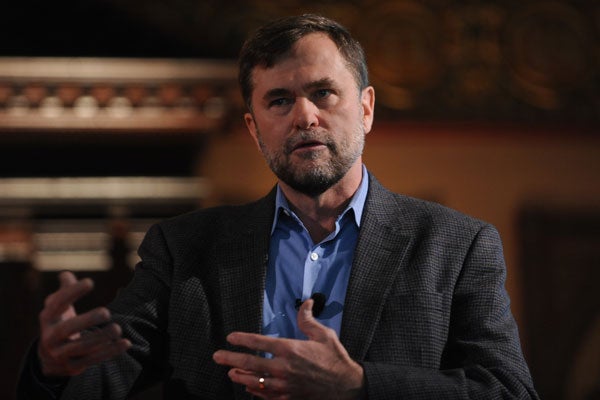
,
, 
,
, 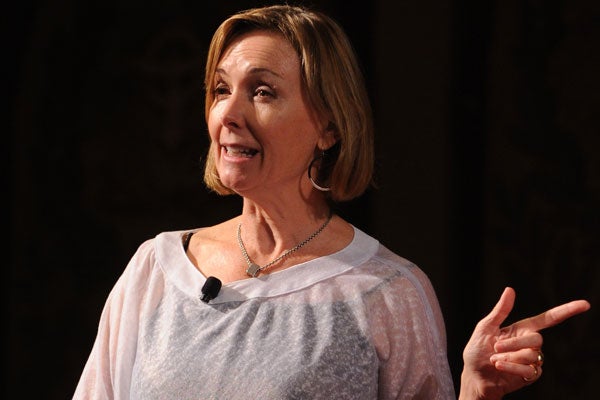
,
, 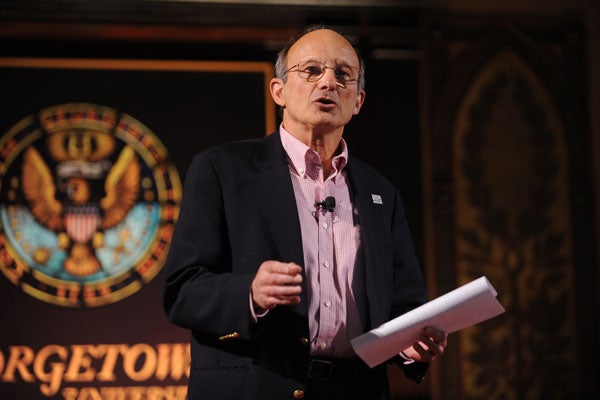
,
, 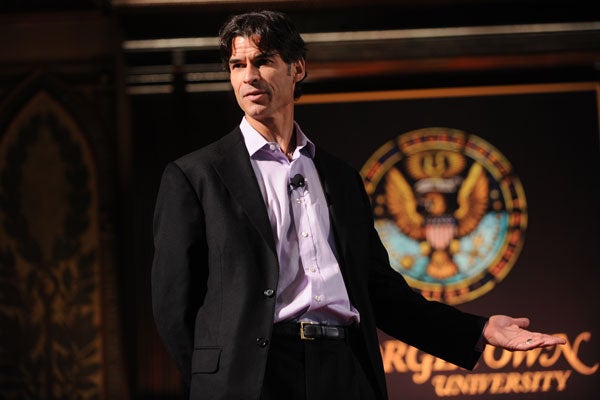
,
, 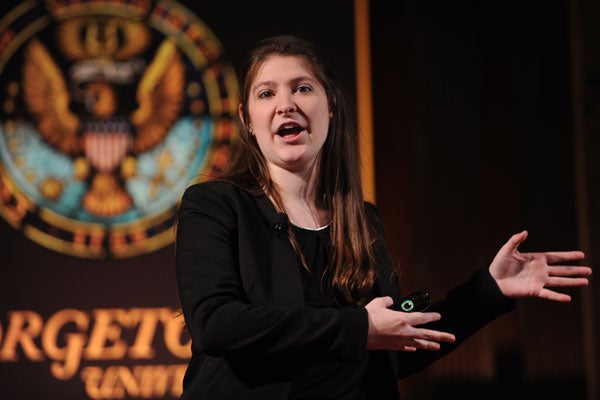
,
, 
,
, 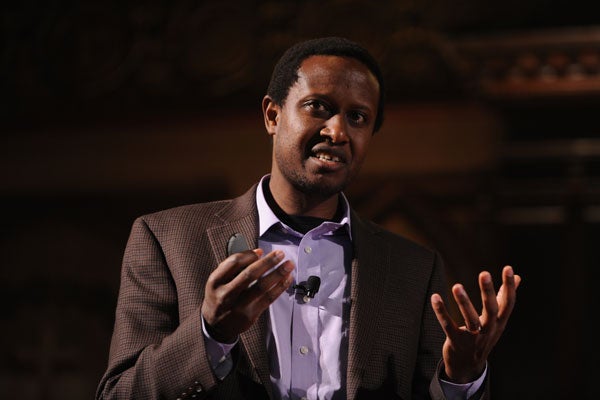
,
, 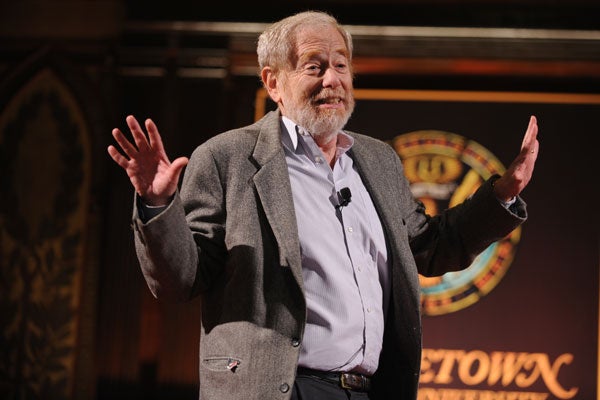
,
, 
,
, 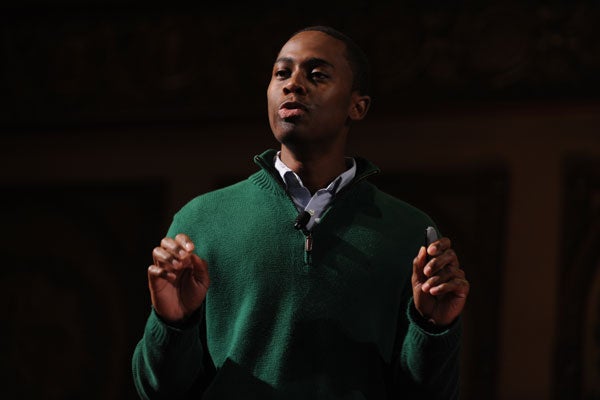
A Georgetown professor said the end of the Cold War and America’s engagement with China catalyzed an era of increased human development during this year’s TEDxGeorgetown Saturday.
“We live today in the era of greatest progress amongst the global poor than in any time in human history,” said Steve Radelet, distinguished professor in the practice of development at the university’s School of Foreign Service. “There has never been a time like the last 20 years … that we have seen so much progress in reductions in poverty, increases in income, improvements in health and education, reductions in violence and conflict and the spread of democracy.”
Radelet credited “change makers” at the global and local level for holding government leaders accountable and paving the way for investments in technologies and economies to develop fledgling democracies.
Positive Momentum
He said more individuals, such as the TEDxGeorgetown attendees, are needed to keep the positive momentum going.
“For some of you, the change maker has already begun to work, for some of you it has yet to emerge, but every single one of you has a role to play,” he said.
The global human development session – one of three – was curated and hosted by Georgetown President John J. DeGioia.
Realizing Promise
“[Global Human Development] is probably best captured in a series of documents that were produced beginning in 1990 by the United Nations called the annual Human Development Reports,” said DeGioia during his remarks. “The idea is that we’re to look at our policies and our programs – our national strategies – for development and to evaluate them in terms of whether they’re providing the capacities – the capabilities – for human beings to realize their promise, to realize their potential to flourish.”
Other speakers on global human development included Sonal Shah, professor of practice and former director of The White House’s Office of Social Innovation and Civic Participation; and Mary McFarland, international director for Jesuit Commons: Higher Education at the Margins.
Pressing Challenges
Georgetown’s Global Human Development Initiative brings together faculty and students from across all three campuses for an interdisciplinary approach to addressing some of today’s most pressing challenges in this area.
“We live now in a regime, a new era, where the concepts of human development are very widespread,” DeGioia said.
The latter two sessions were based on the Jesuit principles of cura personalis (care for the whole person) and women and men for others.
Reflective of Georgetown
“This year we really wanted the ethos of the event to be very reflective of Georgetown,” said Z. Michael Wang, co-organizer of TEDxGeorgetown. “TEDx happens everywhere and rather than just inviting ‘the coolest people’ to come to the university to speak, we wanted to be really reflective of what the university stands for.”
The event was co-sponsored by the Georgetown University Lecture Fund, the Office of the President, University Information Services and the College.
TED, which stands for technology, entertainment and design, is a nonprofit organization that invites speakers to give 18-minute lectures and then posts video recordings online.
“We’re focusing on the impact that these people have in the world,” said Jamie Sharp (C’15), student chair and co-organizer of TEDxGeorgetown. “These are people who are making a difference actively whether it’s through the example they set or the changes they made to themselves but also the real impact on communities … across the nation and the globe.”
The Inaugural Event
TEDxGeorgetown launched in 2011 as an event for students to watch other TED talks happening around the world.
The same year the group launched its own independent conference revolving around the theme “Netcetera: The Internet and Everything Else.”
Last year’s conference on “power” featured 16 speakers ranging from Georgetown students and faculty to award-winning journalists and authors.
2013 Speakers
Others who spoke at this year’s event include:
James Habyarimana, associate professor and co-founder of the Georgetown University Initiative on Innovation, Development and Evaluation (Gui2de)
Bill Novelli, professor in the McDonough School of Business and founder of the Georgetown Social Enterprise Initiative (GSEI)
Francis Slakey, Upjohn lecturer on physics and public policy and author of the best-selling book To the Last Breath (Simon & Schuster, 2012)
Elizabeth Stanley, associate professor of security studies in the School of Foreign Service
Mike Seidman, Carmack Waterhouse professor of constitutional law.
Heather Artinian (C’15), a government major featured in the Academy Award-nominated documentary Sound and Fury.
Jimmy Ramirez (C’15), a student whose family became homeless during his senior year of high school
Rashawn Davis (C’14), who is running for the city council in his hometown of Newark, N.J.